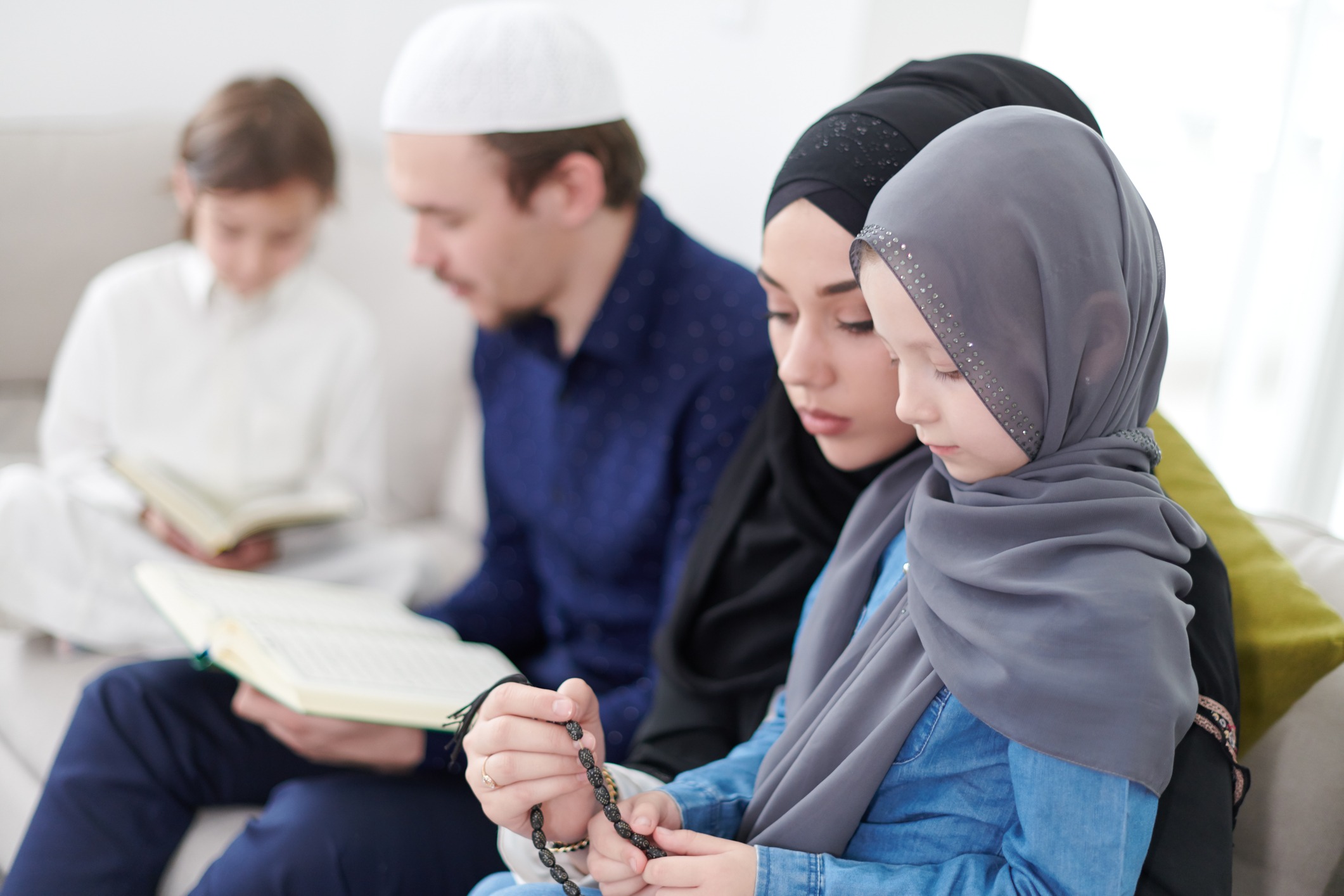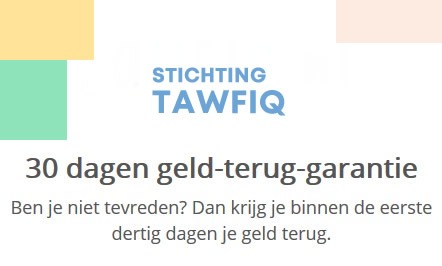 As a teacher who is involved every day in the education of Muslim adolescents, also from the Wijk and Aalburg region, I would like to emphasize the need for Islamic sex education. I have observed how essential it is that adolescents are exposed to sex education that respects their religious values and enables them to make wise decisions in accordance with their faith. In this article I will share my own experiences and explain why it is a duty for every Muslim parent to educate their children in this.
As a teacher who is involved every day in the education of Muslim adolescents, also from the Wijk and Aalburg region, I would like to emphasize the need for Islamic sex education. I have observed how essential it is that adolescents are exposed to sex education that respects their religious values and enables them to make wise decisions in accordance with their faith. In this article I will share my own experiences and explain why it is a duty for every Muslim parent to educate their children in this.
A story from the classroom:
In my classes I have had the opportunity to work with Muslim teenagers from the Wijk and Aalburg area and see their struggles in the field of sexuality. Many of them are exposed to mixed signals and temptations that are not in line with their Islamic beliefs. They need support that helps them understand their sexuality within the boundaries of their faith so that they can become confident and strong individuals.
 One of the main challenges Muslim adolescents face is the society and customs of the country in which they grow up. Although the Netherlands is a country of tolerance and diversity, government information on sexuality can sometimes conflict with Islamic values. This applies not only to religious beliefs but also to Christian, Jewish and Hindu norms and values. But I limit myself here to the religious beliefs of the Muslim teenagers from the Wijk and Aalburg region. The clash between government information and Islamic values creates a divide in which young people can feel confused and isolated. Islamic sex education is essential to bridge this divide and provide them with the knowledge and tools they need.
One of the main challenges Muslim adolescents face is the society and customs of the country in which they grow up. Although the Netherlands is a country of tolerance and diversity, government information on sexuality can sometimes conflict with Islamic values. This applies not only to religious beliefs but also to Christian, Jewish and Hindu norms and values. But I limit myself here to the religious beliefs of the Muslim teenagers from the Wijk and Aalburg region. The clash between government information and Islamic values creates a divide in which young people can feel confused and isolated. Islamic sex education is essential to bridge this divide and provide them with the knowledge and tools they need.
The importance of Islamic sex education is also reflected in the sources of our faith, the Quran and Hadith. These religious texts contain essential guidelines and regulations regarding sexuality and ethics.
Evidence from the Quran:
Surah Al-Isra (17:32) interpretation of the translation: “And do not approach fornication. Verily, it is an atrocity and an evil way.”
Surah An-Nur (24:30) interpretation of the translation: “Say to the believing men that they should lower their eyes and control their passions. That is purer for them. Indeed, Allah is Well Aware of what they do.”
Surah An-Nisa (4:29) interpretation of the translation: “And desire not that with which Allah has endowed some of you over others. For the men there is a share in what they have acquired and for the women there is a share in what they have acquired.”
Surah Al-Baqarah (2:187) interpretation of the translation: “It is lawful for you to go in to your wives on the night of the fast.”
Evidence from Hadith:
Sahih Bukhari, Book 69, Hadith 506:
The Prophet Muhammad (peace be upon him) said: “O youths, whoever of you is able to marry, let him marry, for it is better for his eyes and chastity. And whoever is unable to do so, let him fast, for that will be a protection for him.”
Sahih Bukhari, Book 62, Hadith 4:
The Prophet Muhammad (peace be upon him) said: “O youths, whoever among you is able to marry, let him do so, for it helps in controlling his gaze and his chastity. And whoever cannot, let him fast, for fasting is a shield.”
Sahih Muslim, Book 26, Hadith 5377:
The Prophet Muhammad (peace be upon him) said: “If a man looks at a woman and she looks at him, and neither of them averts his gaze until the other looks away, then that is an arrow from Satan that strikes them both .”
Sahih Muslim, Book 26, Hadith 5391:
The Prophet Muhammad (peace be upon him) said: “O youths, whoever of you is able to marry, let him do so, for it helps him to control his gaze and his chastity. And whoever cannot, let him fast, for fasting diminishes his desires.”
Sunan Ibn Majah, Book 9, Hadith 1846:
Prophet Muhammad (peace be upon him) said: “Marriage is part of my Sunnah (tradition), and whoever does not follow my Sunnah is not from my followers.”
Academic Resources:
To support the value of Islamic sex education for the Islamic identity of Muslim adolescents, several academic resources are available. Here are two relevant sources:
Research by Noura Abdullah Al-Mutairi (2016): “The Role of Islamic Education in Preserving the Islamic Identity of Muslim Adolescents.” This study underlines the importance of Islamic education in maintaining the Islamic identity of Muslim adolescents.
Study by Aisha Sherina Mohd. Nor and Azam Othman (2017): “Sex Education in Islamic Perspective.” This study examines how Islamic sex education can be integrated into the education system of Muslim countries.
Pros and cons:
For:
Education about sexuality within Islam promotes positive sexual development, based on Islamic values and norms.
It helps Muslim adolescents understand their sexuality within the boundaries of their faith and makes them resilient to unwanted influences.
Islamic sex education provides a protected environment for free and honest dialogues about sexuality, while respecting cultural and religious sensitivities.
In return for:
Some may argue that Islamic sex education can limit the diversity and individuality of young people's sexuality.
There may be concerns about the absence of specific topics in Islamic sex education, such as contraception and homosexuality.
The integration of Islamic sex education into standard education can pose curricular and policy challenges.
The importance of Islamic sex education for Muslim teenagers from the Wijk and Aalburg area cannot be overestimated. It is an obligation for every Muslim parent to educate their children in this regard so that they can thrive within their Islamic identity. By integrating Islamic values into sex education, we can help our Muslim youth make healthy choices and protect themselves from negative influences. Let us work together for the sake of Allah swt to offer young Muslims from the Wijk and Aalburg region the guidance they need to grow up into confident, responsible and respectful people in Dutch society.
As a teacher and part of the Tawfiq Foundation, we understand the need for Islamic sex education for parents within the Muslim community in the Wijk and Aalburg area. We offer an educational program that spans four sessions and is specifically tailored to Muslim adolescents. Our teachers combine knowledge of Islamic teachings with a tolerant and empathetic approach, so that our Muslim adolescents feel understood and supported.
For more information about the Tawfiq Foundation's educational program and how we support young Muslims in their sexual development, please contact us by email or complete the registration form.



 As a teacher who is involved every day in the education of Muslim adolescents, also from the Wijk and Aalburg region, I would like to emphasize the need for Islamic sex education. I have observed how essential it is that adolescents are exposed to sex education that respects their religious values and enables them to make wise decisions in accordance with their faith. In this article I will share my own experiences and explain why it is a duty for every Muslim parent to educate their children in this.
As a teacher who is involved every day in the education of Muslim adolescents, also from the Wijk and Aalburg region, I would like to emphasize the need for Islamic sex education. I have observed how essential it is that adolescents are exposed to sex education that respects their religious values and enables them to make wise decisions in accordance with their faith. In this article I will share my own experiences and explain why it is a duty for every Muslim parent to educate their children in this. One of the main challenges Muslim adolescents face is the society and customs of the country in which they grow up. Although the Netherlands is a country of tolerance and diversity, government information on sexuality can sometimes conflict with Islamic values. This applies not only to religious beliefs but also to Christian, Jewish and Hindu norms and values. But I limit myself here to the religious beliefs of the Muslim teenagers from the Wijk and Aalburg region. The clash between government information and Islamic values creates a divide in which young people can feel confused and isolated. Islamic sex education is essential to bridge this divide and provide them with the knowledge and tools they need.
One of the main challenges Muslim adolescents face is the society and customs of the country in which they grow up. Although the Netherlands is a country of tolerance and diversity, government information on sexuality can sometimes conflict with Islamic values. This applies not only to religious beliefs but also to Christian, Jewish and Hindu norms and values. But I limit myself here to the religious beliefs of the Muslim teenagers from the Wijk and Aalburg region. The clash between government information and Islamic values creates a divide in which young people can feel confused and isolated. Islamic sex education is essential to bridge this divide and provide them with the knowledge and tools they need.

